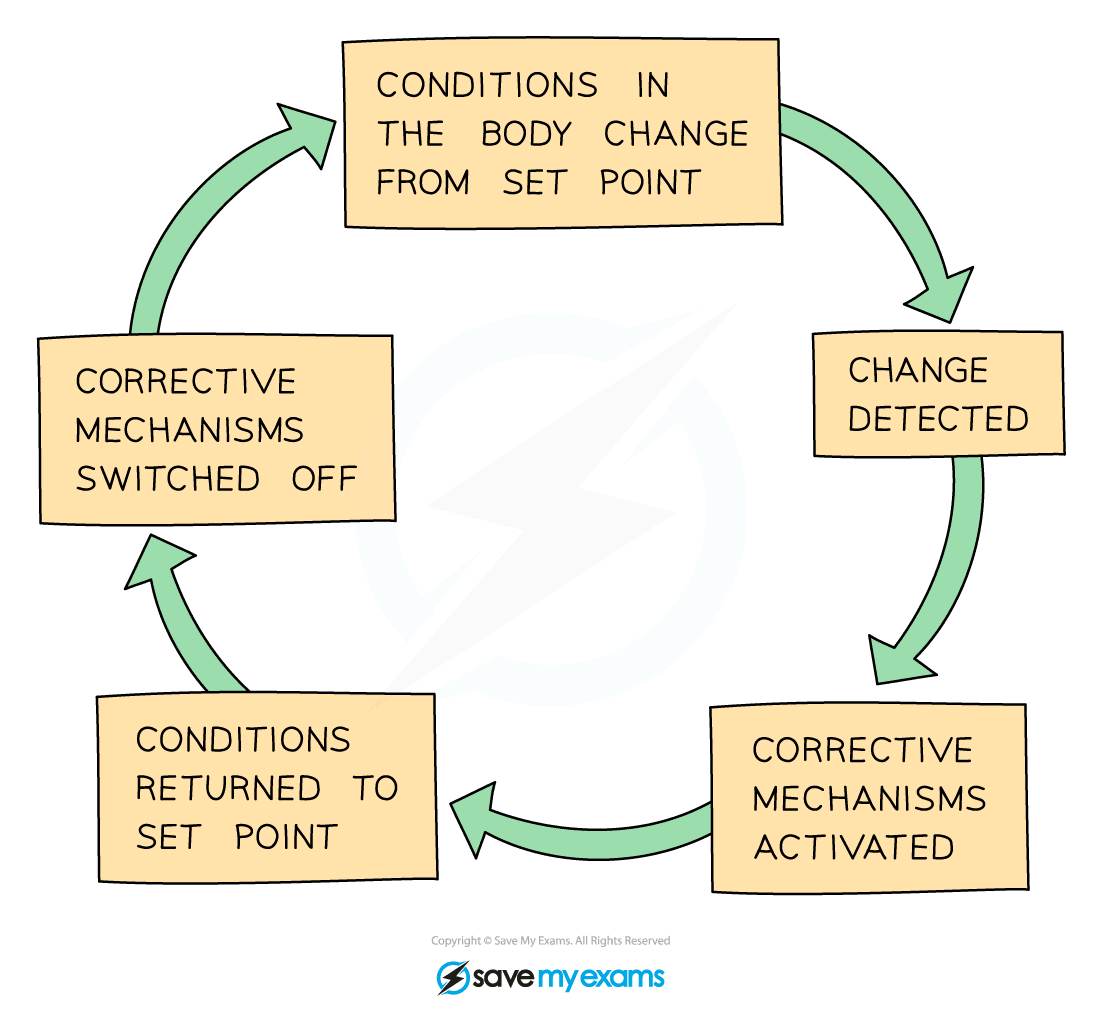Thyroxine
Negative feedback mechanisms
- Negative feedback mechanisms in homeostasis help to maintain conditions in the body within an optimal narrow range; any movement away from ideal conditions results in changes occurring which bring them back
- This involves detecting that the level of a substance or a condition has gone above or below normal levels, which triggers a response to bring the level back to normal again
- Thyroxine and control of the basal metabolic rate is an example of negative feedback

A negative feedback cycle
- Thyroxine is a hormone that is released from the thyroid gland (which is located in the neck)
- Thyroxine has a number of important roles in the body
- It stimulates the basal metabolic rate (BMR); this is the speed at which chemical reactions occur in the body when it is at rest
- Thyroxine levels are also controlled by negative feedback; with levels of TSH (thyroid-stimulating hormone) released from the pituitary gland responsible for maintaining normal levels in the bloodstream
- If the level of thyroxine is too high
- The release of TSH is inhibited, so less thyroxine is released from the thyroid gland
- If the level of thyroxine falls below a normal level
- The release of TSH from the pituitary gland is increased, which stimulates the thyroid to release more thyroxine
Conditions of the thyroid
- Two conditions related to the thyroid gland are:
- Hyperthyroidism, caused by an overactive thyroid gland secreting too much thyroxine into the bloodstream which causes an increase in BMR and protein synthesis
- Hypothyroidism caused by an underactive thyroid gland secreting too little thyroxine into the bloodstream which can lead to heart and nerve problems, and death
Exam Tip
You should be able to interpret and explain simple diagrams of negative feedback control in the exam, recognising what happens when a change away from the normal level is detected.

